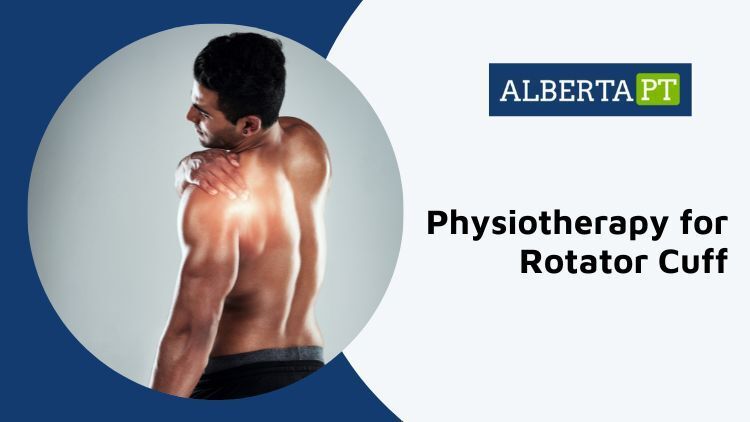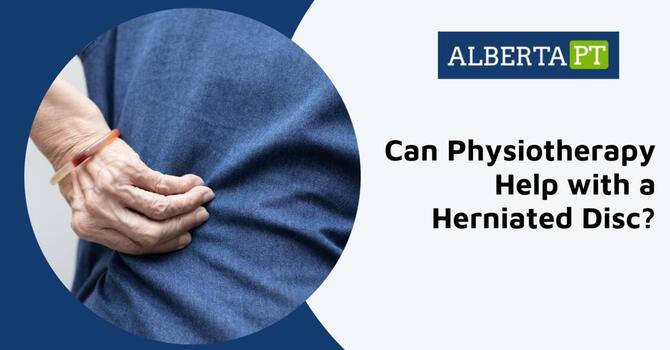
When it comes to agonizing injuries, the rotator cuff is right up there on the high-end of the discomfort scale. It's commonplace for both very active and sedentary people of any ages to hurt their shoulder joint rotator cuff with partial tears, and this kind of severe pain in your shoulder or upper arm bone can be rather tough to recover from. It can also limit your ability to carry out a wide range of overhead activities or overhead motions, and prevent you from enjoying recreational activities.
Luckily, there are several physio treatment choices readily available. Here are five good reasons why you should think about getting your pain relief kicked off with a local physiotherapist:
You May Require a Restorative Exercise Program
Depending on the precise nature of your rotator cuff shoulder injury, you may need to follow a specific restorative workout program. Your physio therapist can help you to identify your particular rotator cuff issue and develop an unique workout program to address it. It's worth keeping in mind that a corrective workout program is distinct from an exercise program developed to help you return to your regular activities as soon as possible.
The latter kind of program can be helpful for discomfort management and improving your range of movement, but it will not particularly target the soft tissue involved in your rotator cuff injury. If you wish to make certain your rotator cuff injury is treated properly, your physiotherapist will likely produce a corrective workout program that's individualized for you.
Your Rotator Cuff Injury May Require Stretching or Taping
Depending upon a physical examination the degree of your rotator cuff injury, you might benefit from some light stretching or taping. For instance, if you have a moderate rotator cuff pressure or sprain, your physiotherapist might recommend that you try some light extending or mild taping just to help reduce some of your pain and tightness.
If you have a severe rotator cuff tear, a complete tear or if your rotator cuff injury is degenerative, on the other hand, your physiotherapist may suggest some more extreme stretching or taping. To be clear, this does not always imply that you'll need to remain in treatment for hours at a time. Instead, your physio therapist might suggest that you do some mild stretching or light taping in your home just before your treatment sessions and after that once again after your treatment sessions.
You May Profit From Manual Therapy for Pain Management
Among the important things that sets physiotherapy apart from other types of healthcare therapy is that it includes a manual therapy aspect. What this indicates is that a physiotherapist will likely utilize some type of manual treatment for discomfort management, such as myofascial release (MFR) and joint mobilization. MFR is a massage-like method that can assist to loosen tight muscles, lower swelling and enhance agility.
Joint manipulation includes physiotherapists using their hands to apply pressure to your joints. Manual treatment can be greatly beneficial for people with rotator cuff injuries. This is because your rotator cuff muscles are connected to your shoulder joint, which signifies that they can get extremely irritated and uncomfortable if they're not working the proper way. Manual treatment can assist to alleviate your discomfort, improve your range of motion and help your muscles work more efficiently.
You Might Get Relief From Dry Needling and/or Ultrasound Treatment
If your physical therapist thinks that dry needling or ultrasound treatment will be valuable for your rotator cuff injury, they'll likely provide these treatments throughout your sessions. Dry needling is a type of acupuncture. Your physiotherapist will apply really small needles to your muscles.
Nevertheless, dry needling is in fact used to treat pain instead of trying to deal with other health issues such as general acupuncture. Your physiotherapist may suggest dry needling if they believe your rotator cuff injury is triggered by or exacerbated by muscle knots.
If they feel that ultrasound treatment will be helpful, they'll likely apply it to your muscles. Both dry needling and ultrasound therapy can be helpful for treating rotator cuff pain. Dry needling can assist to break up muscle knots, and ultrasound can assist to increase blood circulation to the injury area.
You May Need to Address Your Core Dysfunction
Your core is the area at the centre of your body where your back, stomach and hips meet. It is made up of your muscles, ligaments and your spine. For example, your core muscles may become too weak, causing them to be not able to keep your shoulder blades together. As a result, your shoulders will be pulled forward, which can put a great deal of pressure on your rotator cuff muscles.
Your physiotherapist may suggest that you address your core dysfunction if they observe that your rotator cuff injury is being brought on by a weak core. Your physiotherapist may suggest some specific exercises or activities that you can do in your home or in the fitness center to assist remedy your core dysfunction.
Your Rotator Cuff Injury May Be Caused By a Strong Core
As we simply discussed, your rotator cuff might end up being injured if your core muscles are too weak. On the other hand, your rotator cuff may suffer if your core ends up being too strong. Your core muscles are responsible for keeping your spinal column steady and straight. If they become too strong and overwhelm your rotator cuff muscles, your shoulder blades might be pulled back and together.
This can put a lot of stress on your rotator cuff muscles, which can lead to an injury. If your physio therapist sees that your rotator cuff injury is being brought on by a strong core, they might suggest that you do some exercises that target your core. These exercises can help to extend your core muscles so that they don't overwhelm your rotator cuff muscles.
The Bottom Line
Rotator cuff injuries are often slow-healing and need a long period of treatment for full recovery. Luckily, our physiotherapy clinic has a range of treatments available that are shown to help relieve rotator cuff pain and promote recovery of the rotator cuff muscles.
But it's important to get going with your treatment right after your injury. Extended use of a hurt rotator cuff might aggravate your pain and cause lasting damage to the muscles and ligaments surrounding your shoulder.
Contact an area physiotherapist for additional information on how physiotherapy can help your rotator cuff, and you can get back to your daily activity without pain.
Give Alberta PT a call today and start easing your rotator cuff pain. Now booking new appointments!






